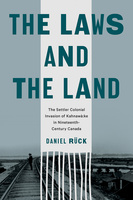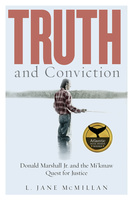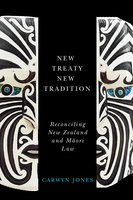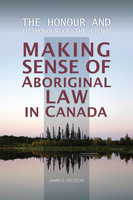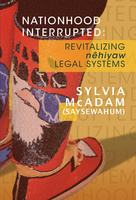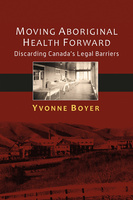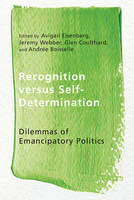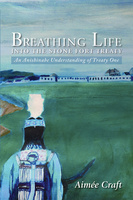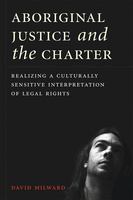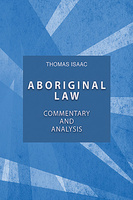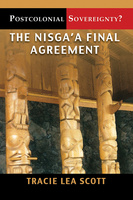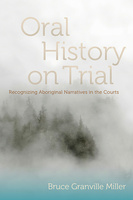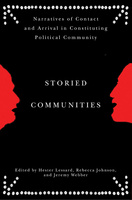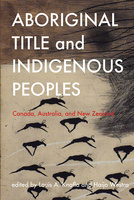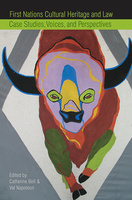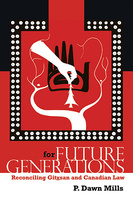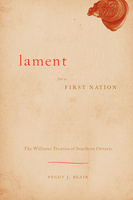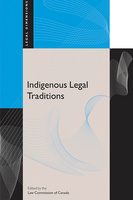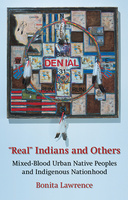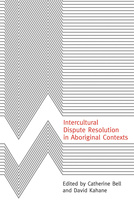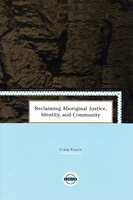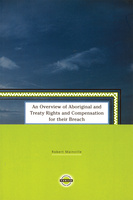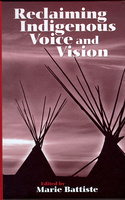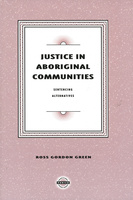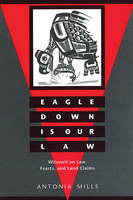Protecting Indigenous Knowledge and Heritage, New Edition
A Canadian Obligation
Against the backdrop of the United Nations Declaration on the Rights of Indigenous Peoples, Protecting Indigenous Knowledge and Heritage examines past and emerging issues in the recognition of Indigenous inherent human rights and knowledge within a Canadian legal context.
The Laws and the Land
The Settler Colonial Invasion of Kahnawà:ke in Nineteenth-Century Canada
The Laws and the Land, an original and impassioned account of the history of the relationship between Canada and Kahnawà:ke, reveals the clash of settler and Indigenous legal traditions and the imposition of settler colonial law on Indigenous peoples and land.
Truth and Conviction
Donald Marshall Jr. and the Mi’kmaw Quest for Justice
A passionate account of how one man’s fight against racism and injustice transformed the criminal justice system and galvanized the Mi’kmaw Nation’s struggle for self-determination, forever changing the landscape of Indigenous rights in Canada and around the world.
New Treaty, New Tradition
Reconciling New Zealand and Maori Law
Maori author and legal scholar Carwyn Jones provides a nuanced analysis, enhanced by storytelling, of the New Zealand land claims process to draw attention to the cultural implications of Indigenous self-determination, settlement negotiations, and reconciliation projects around the globe.
The Honour and Dishonour of the Crown
Making Sense of Aboriginal Law in Canada
Unique within Canadian legal writing, this book unpacks the complex conceptual differences between the fiduciary duty of the Crown and the honour of the Crown.
Nationhood Interrupted
Revitalizing nêhiyaw Legal Systems
Co-founder of the international movement Idle No More, Sylvia McAdam shares nêhiyaw (Cree) laws so that future generations may understand and live by them, revitalizing Indigenous nationhood.
Moving Aboriginal Health Forward
Discarding Canada’s Legal Barriers
This comprehensive analysis of Aboriginal health statistics, historical practices, and legal principles in Canadian law provides a practical framework for the reconciliation of Aboriginal health and healing practices within Canadian society.
Recognition versus Self-Determination
Dilemmas of Emancipatory Politics
This book re-evaluates the role of recognition in analyzing relations between groups in plural societies, the position of indigenous peoples in settler societies, and the principle of the self-determination of peoples.
Breathing Life into the Stone Fort Treaty
An Anishnabe Understanding of Treaty One
A comprehensive evaluation of how negotiations for Treaty One were shaped by Aboriginal Anishinabe laws
Aboriginal Justice and the Charter
Realizing a Culturally Sensitive Interpretation of Legal Rights
This book explores the tension between Aboriginal justice methods and the Canadian Charter of Rights and Freedoms, while searching for practical ways to implement Aboriginal justice.
Aboriginal Law, Fourth Edition
Commentary and Analysis
Now in its 4th edition, this definitive text discusses and clarifies Canadian laws impacting Aboriginal peoples.
Postcolonial Sovereignty?
The Nisga’a Final Agreement
An extensive examination of the significant Nisga’a Final Agreement and the effect on Aboriginal and government relations.
Oral History on Trial
Recognizing Aboriginal Narratives in the Courts
This compelling analysis of Aboriginal, legal, and anthropological concepts of fact and evidence argues for the inclusion of Aboriginal oral histories in Canadian courts, and pushes for a reconsideration of the Crown's approach to oral history.
Storied Communities
Narratives of Contact and Arrival in Constituting Political Community
An exploration of the role of storytelling in community and nation building that disrupts the assumption in many works that indigenous and immigrant identities fall into two separate streams of analysis.
Aboriginal Title and Indigenous Peoples
Canada, Australia, and New Zealand
Offers a perspective on Aboriginal title and land rights that extends beyond national borders and the contemporary context to consider historical developments in common law countries.
First Nations Cultural Heritage and Law
Case Studies, Voices, and Perspectives
For Future Generations
Reconciling Gitxsan and Canadian Law
Dawn Mills passionately shows how reconciliation can be achieved between Canada’s First Nations and the various levels of government.
Moving Toward Justice
Legal Traditions and Aboriginal Justice
Exploring constitutional and administrative policy changes that underscore the urgent need for Aboriginal justice reform.
Lament for a First Nation
The Williams Treaties of Southern Ontario
An important analysis of how the 1994 Howard decision on the Williams Treaties was based on erroneous cultural assumptions that favoured public over special rights.
Indigenous Legal Traditions
The essays in this book present important perspectives on the role of Indigenous legal traditions in reclaiming and preserving the autonomy of Aboriginal communities and in reconciling the relationship between these communities and Canadian governments.
Our Box Was Full
An Ethnography for the Delgamuukw Plaintiffs
Daly explores the central meaning of the notion of land in the determination of Aboriginal rights with particular reference to the landmark Delgamuukw case that occupied the British Columbia courts from 1987 to 1997.
First Nations Sacred Sites in Canada's Courts
This book demonstrates how and why courts have failed to fairly treat First Nations sacred sites, which are under increasing threat worldwide due to state appropriation and insatiable demands on natural resources.
“Real” Indians and Others
Mixed-Blood Urban Native Peoples and Indigenous Nationhood
A pioneering look at how mixed-blood urban Native people understand their identities and struggle to survive in a world that often fails to recognize them.
Intercultural Dispute Resolution in Aboriginal Contexts
The essays collected here provide a balanced view of alternative dispute resolution, exploring its opportunities and effectiveness alongside its challenges and limits.
Reclaiming Aboriginal Justice, Identity, and Community
At the heart of this timely and significant book is an alternative way of thinking about Aboriginal crime and justice.
Who are Canada's Aboriginal Peoples?
Recognition, Definition, and Jurisdiction
Timely, innovative, and progressive, this collection provides an essential frame of reference to measure the development of Aboriginal legal policy respecting recognition, definition and jurisdiction in Canada.
An Overview of Aboriginal and Treaty Rights and Compensation for Their Breach
Mainville provides clear and practical principles for addressing the breach of Aboriginal and treaty rights and determining appropriate compensation.
Reclaiming Indigenous Voice and Vision
This inspiring volume elaborates a new inclusive vision of a global and national order and articulates new approaches for protecting, healing, and restoring long-oppressed peoples, and for respecting their cultures and languages.
Justice in Aboriginal Communities
Sentencing Alternatives
Using several Aboriginal communities as case studies, Green analyzes the successes and challenges for alternative sentencing within the Canadian criminal justice system.
Eagle Down Is Our Law
Witsuwit'en Law, Feasts, and Land Claims
The struggle of the Witsuwit'en peoples to establish the meaning of aboriginal rights.


